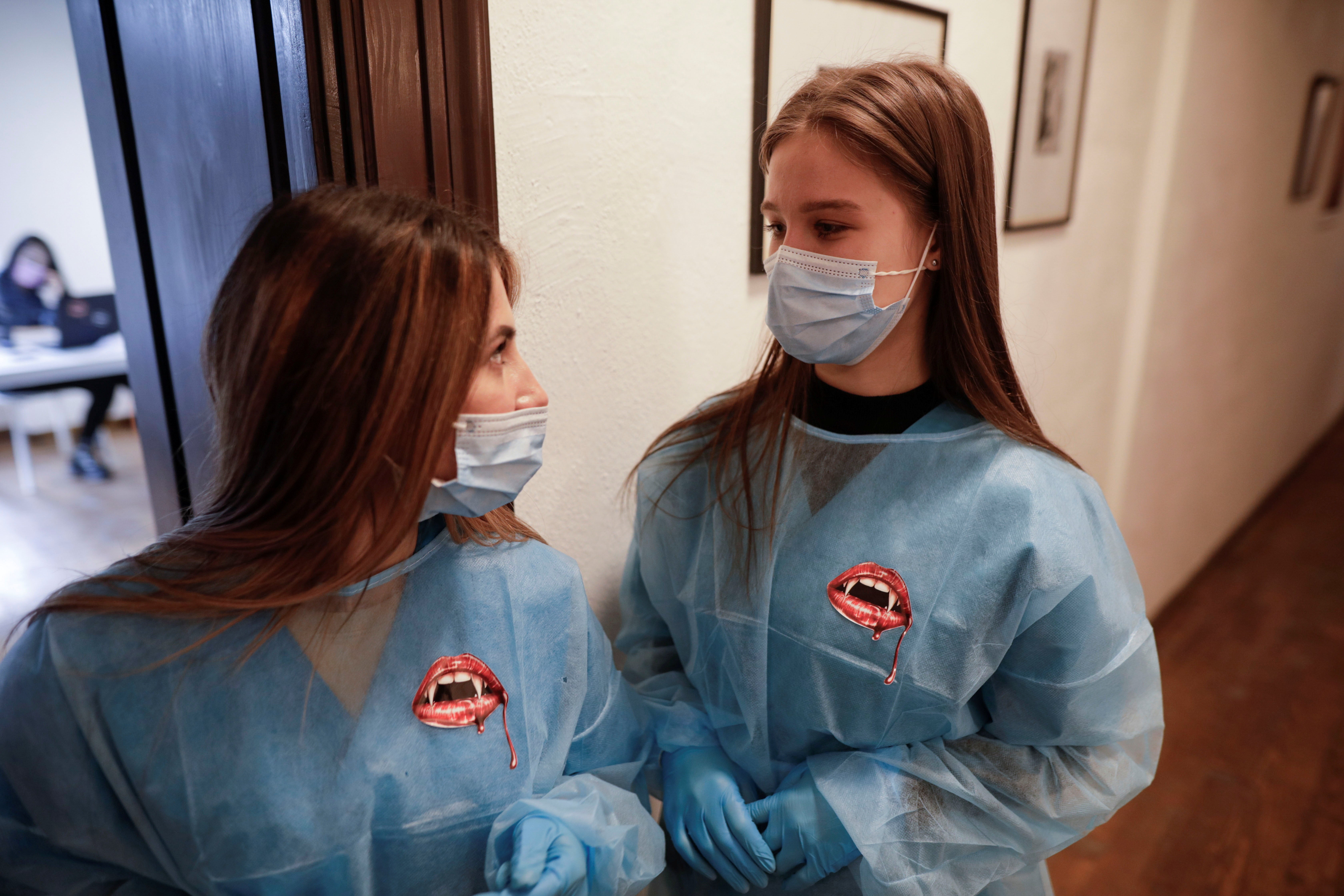Dracula's castle lures visitors with Covid vaccinations
Medics administering the vaccine will wear scrubs with fang stickers on

Your support helps us to tell the story
From reproductive rights to climate change to Big Tech, The Independent is on the ground when the story is developing. Whether it's investigating the financials of Elon Musk's pro-Trump PAC or producing our latest documentary, 'The A Word', which shines a light on the American women fighting for reproductive rights, we know how important it is to parse out the facts from the messaging.
At such a critical moment in US history, we need reporters on the ground. Your donation allows us to keep sending journalists to speak to both sides of the story.
The Independent is trusted by Americans across the entire political spectrum. And unlike many other quality news outlets, we choose not to lock Americans out of our reporting and analysis with paywalls. We believe quality journalism should be available to everyone, paid for by those who can afford it.
Your support makes all the difference.A castle in Romania which houses a Dracula museum has been converted into a coronavirus vaccination centre to draw more visitors.
Bran Castle, which is thought to have inspired Bram Stoker’s novel Dracula, dates from the 14th century and is located in the Carpathian mountains.
Medics, who wear scrubs with fang stickers on, are offering people Pfizer vaccine shots every weekend in May. Each jab comes with free entry to the site’s museum on medieval torture.
The former royal palace turned to the service after tourist numbers dropped significantly during the pandemic.
Speaking about the scheme, Alexandru Priscu, the castle’s head of marketing, said: “The idea... was to show how people got jabbed 500-600 years ago in Europe.”
Fernando Orozco, 37, a renewable energy market developer, took the opportunity to be immunised. “I was already planning to come to the castle and I just thought it was the two-for-one special,” he told Reuters.
Romania has recorded more than a million Covid-19 cases and almost 29,000 deaths from the virus, according to data collected by Johns Hopkins University (JHU).
The country has so far fully vaccinated 2,254,449 people, equivalent to 11.65 per cent of its population. This is much lower than the UK’s 25.76 per cent but is higher than some other European countries, including the Netherlands, whose total stands at 5.44 per cent of its populace.
The Romanian government had initially hoped to give five million people both doses by 1 June and another five million their jabs by September. However, health minister Iona Mihaila said over the weekend that the first target would be missed.
Globsec, a Bratislava-based think tank, released a study last April saying that Romanians were more hesitant to have a vaccine than their EU neighbours.
Covid-19 infections in the capital Bratislava have declined in recent weeks, meaning that restaurants and cafes have reopened to 30 per cent capacity, after their indoor spaces were shut in late March because of rising case numbers.
Additional reporting by agencies
Join our commenting forum
Join thought-provoking conversations, follow other Independent readers and see their replies
Comments